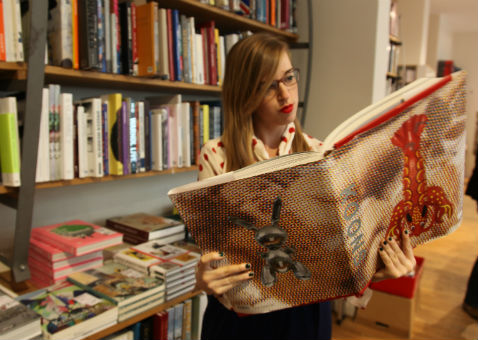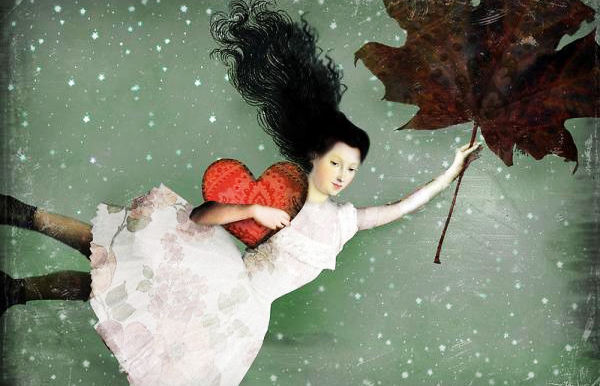“Artbroken,” But Certainly A Bit Wiser

BAPS writer Patricia Restrepo took on the challenge to examine a claim made in a recent New York Times article: knowledge about art history can make you emotionally ignorant. Follow her change in mindset as she reconsiders her stuborn position through a personal anecdote:
"Artbreaker"
I thought I had finally found a catch. After all, decent guys are as hard to come by in Berlin as decent-paying jobs. But then it happened: he became an “Artbreaker” – great relationship potential until a discussion of art cock-blocks me. The "Artbreak" began with a seemingly innocent chat after viewing the latest exhibition at La Placette gallery in Neuköln. While I was rotating around the gallery, consulting the guides and speaking to the gallerist to learn as much as possible for my review, my date plomped himself a couch in front of two paintings.
Indeed, for the whole hour I was there, he only moved once when I needed his assistance to translate one of the placards detailing the artist’s statement into English. As we left the gallery, he told how intense his experience with the paintings had been until I asked him to translate the placard, thereby shattering his innate connection with the works. Also, he had focused on the paintings because he finds photographic works too realistic, as opposed to painting, which allows for more creative freedom.
I was irate. How could he make such generalizations? Didn't he know that contemporary photography has been freed from its resemblance complex while several movements in modern painting play on the genres’ overlap, such as photorealism? I ruthlessly assured him that anyone knowledgeable about art would realize that the artistic spectrum is intricately nuanced. He responded that my knowledge about art history was perhaps hijacking my response to a work, inhibiting my experience by causing me to analyze pedantically the work. In short, he argued that knowledge can actually make you ignorant.
Knowledge: The Enemy of Art?
As dramatic as it may seem, I felt that we had reached an impasse – a deal breaker over this inability to see eye-to-eye. I hated myself for my smugness and inability to compromise my position, but I just couldn't shake the feeling that I knew better. In this postmodern era, how could anyone in good conscience promote ignorance?
In the next couple of days, signs beckoned me to reconsider my position. First, my current method of passing the hours in the S-Bahn, the book “Deaf Sentence,” mockingly repudiated the rhetoric surrounding contemporary art, claiming it to be nothing more than an empty shell without which the impact of art would crumble. Then, a convincing article in the New York Times asserted that there is “little difference in engagement between visitors with a proficient knowledge of art” and unprofessional art affecionados. Mr. Tröndle, the researcher behind this conclusion, added “we could almost say that knowledge is making you ignorant.”
Be the first to write a comment.
Your feedback
